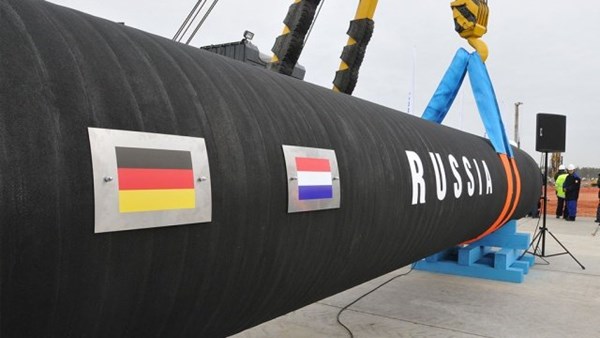Russia's Gazprom loses German court appeal to use 100 percent of Nord Stream 2 capacity
As Russian officials celebrated the opportunity to complete the Nord Stream 2 pipeline, Russia’s gas giant Gazprom was defeated in a key dispute over the future of the project.
On Wednesday, the Dusseldorf Higher Regional Court rejected the appeal of Nord Stream AG against the decision of the Federal Network Agency of Germany, which refused to remove the gas pipeline from the regulations of the third EU energy package of the EU.
The Swiss-based Nord Stream AG, a 100 percent subsidiary of the Russian gas giant Gazprom, tried to challenge the decision of the German gas market regulator that the project should follow pan-European competition norms.
The third energy package prohibits the gas supplier (Gazprom) from being the owner of the pipe at the same time. In practice, this means that the Russian gas monopoly will have to give half of the gas pipeline's capacity, 27.5 billion cubic meters per year out of 55 billion, to independent suppliers.
Gazprom is not able to fulfill the requirements. Only its fields are connected to Nord Stream-2, and in addition, no Russian company has the right to export gas through this pipeline. In other words, the pipeline will remain half-empty.
Gazprom was hoping to exploit a "loophole" in European legislation. Initially, the requirements of the gas directive did not apply to offshore pipelines. In 2017, the European Commission proposed to eliminate this possibility, but the adoption of amendments was blocked for more than a year by Germany. The situation changed dramatically in 2018 after the intervention of France, which pointed out to "strategic problems" that Nord Stream 2 will add to already tense relations between Russia and the EU.
In April 2019, the European Parliament by an overwhelming majority of votes (465 for, 95 against with 68 abstentions) approved changes to legislation and extended the gas directive to offshore pipelines from third countries.
On 10 January 2020, Nord Stream AG applied for the project to be exempted from the requirements of the Gas Directive. The company referred to the fact that the project should be considered completed in May 2019, that is, before the amendments came into force. Gazprom claimed that the end of investments to the project should be considered as its completion and not the physical completion of construction.
But Germany's Federal Network Agency rejected that argument, saying it was basing its decision on a "construction and technical understanding" of the term "project completion."
The court's decision will not prevent Gazprom from finishing the 10 billion euros gas pipeline but will not allow it to be used at full capacity, said Dmitry Marinchenko, director of the natural resources and commodities group at the Fitch agency.
"This will increase the demand for pumping through Ukraine and increases the likelihood that the need for the Ukrainian gas transit system will continue after 2024, when the current transit contract expires," Marinchenko points out.
Nord Stream 2 AG took note of the decision of the German court not to exempt Nord Stream 2 from the provisions of the EU Gas Directive and considers it "discriminatory", the company's press service told RBC news agency.
"As of the date of entry into force of the amendments on May 23, 2019, the gas pipeline was completed in terms of financial security. Based on the legal framework in force at the time, the company made an investment of several billion euros long before the European Commission announced its plan to amend the EU Gas Directive," the operator explained.
